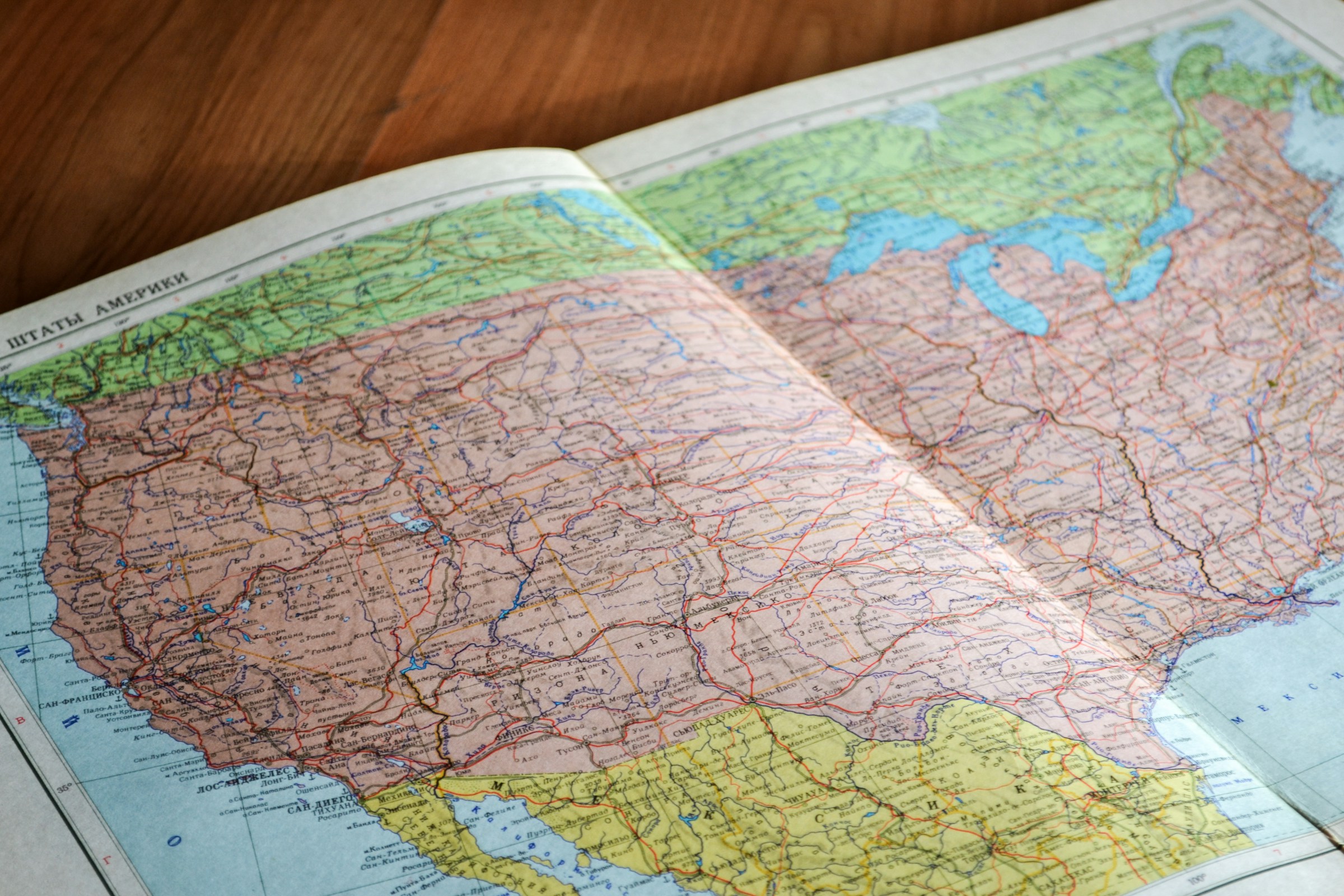If you're facing A Level choices, you may be overwhelmed by the number of subjects on offer. While some students might gravitate towards the science subjects, others might prefer the arts, and yet others will enjoy subjects like Geography that combine elements of both. But what is the heardest A levels subject? The A Level in Geography is popular among students for its diverse subject matter and real-world applications.
If you find that Geography A Level isn't quite what you imagined, or if you're struggling to get started with your studies, Ucademy online tutoring UK can help you get back on track. With the help of a skilled tutor, you can improve your understanding of geographical concepts or even get assistance with exam preparation and revision.
Is Geography A Level Hard?

A Level Geography is often viewed as moderately challenging. It’s not the easiest route, but it is certainly manageable with the right approach and dedication. Official data from FFT Education Datalab for 2024 shows that 98.3% of students achieved at least a grade E, indicating a strong pass rate. This suggests the subject is accessible to most learners who put in the effort.
When it comes to high grades, Geography appears slightly more challenging than some other subjects. In 2024, only 24.8% of students secured a grade A or above, which is lower than the overall average of 27.8% for all A Levels. However, this gap is small and shouldn’t discourage prospective students from choosing the subject.
One of the factors influencing how complex Geography feels relates to individual preferences. Those who enjoy understanding human and physical environments, investigating data, and applying critical thinking usually find the subject more engaging and less demanding. Skills in essay writing, map reading, and interpreting statistics are also key to success.
Additionally, Geography combines both scientific and artistic elements, requiring knowledge across multiple domains, such as geology, economics, and sociology, which can be challenging but also rewarding. Effective time management and consistent revision help with mastering diverse content and exam techniques.
The difficulty of geography varies depending on personal interests, skills, and commitment. It is neither the hardest nor the easiest A Level but offers a balanced challenge. With steady study habits and genuine curiosity, students can perform well and enjoy the subject throughout their course.
Book a Free Consultation Today | Free University Readiness Audit
Our proven British Curriculum methodology has helped thousands of students achieve top grades, with expert tutors from top universities, such as Oxford and Cambridge, guiding them every step of the way. Ucademy takes the confusion out of navigating GCSEs, A levels, 11+, and university applications by creating a personalized roadmap explicitly tailored to your child's goals and learning style.
We provide the structured accountability framework that busy parents need, ensuring your child stays on track to reach their full academic potential and secure their place at a top university. Don't let your child struggle through critical academic years without expert guidance and a clear path to success. Book your free consultation today to get your free university readiness audit and action plan.
Factors Influencing Difficulty in Geography A Level

How hard you find Geography A Level depends mainly on your interests, aptitudes, learning preferences, and work habits. Students with a passion for the subject and good study routines typically navigate the challenges more effectively.
Large Volume of Content
One of the main difficulties in Geography A Level is the sheer amount of material covered. The course encompasses both physical geography, such as natural processes, and human geography, including societal impacts. Memorizing detailed case studies, processes, and concepts requires strong memory skills and effective time management to avoid becoming overwhelmed before exams.
Applying Knowledge in Different Contexts
Success in Geography isn’t just about recalling information. You also need to apply concepts to various scenarios, demonstrating a deep understanding that extends beyond mere facts. This includes interpreting and analysing data, so your practical and theoretical knowledge is both tested and integrated.
Math Skills Required
While Geography doesn’t demand advanced mathematics like trigonometry, you will need a reasonable grasp of statistical ideas and the ability to work with data. For students less confident in maths, this aspect may be a challenge, but it does not require full proficiency in A Level Maths.
Essay Writing Abilities
Robust essay writing is essential, with some essays worth 20 marks or more. You must construct clear, logical arguments that explain your thinking, reflecting a step up from GCSE-level writing. These skills develop progressively throughout the course, preparing you for the exam rigor.
Related Reading
- A Levels vs GCSE
- A Levels Needed for Engineering
- What to do If You Fail A Levels
- A Level Grading System
What A Level Geography Looks Like

A Level Geography covers two main areas; physical geography and human geography.
Physical geography explores natural processes that shape the environment. This includes topics like the water cycle, natural disasters, and ecosystems.
Human geography examines how societies and global systems operate and interact. You’ll study subjects such as government systems, resource use, migration, and population dynamics.
At the end of the course, you usually face two to four exam papers, depending on your exam board. These tests combine short-answer questions with longer essay responses to assess your knowledge and analytical ability.
Fieldwork is a crucial component of the course. It helps you apply theoretical knowledge in real-world settings. Your fieldwork might be assessed through coursework or by answering questions related to it in your exams, again depending on your exam board.
Why study A Level Geography

Build Essential Skills
Taking A Level Geography equips you with a broad set of skills that are highly valued across many fields. You’ll enhance your communication abilities, learn to analyze and interpret data effectively, and develop sharp critical thinking skills. These competencies are not only useful for exams but also vital in everyday problem-solving and decision-making.
A Strong Pathway to University
Geography is considered a facilitating subject by universities, meaning it’s well-respected and can support admission to a wide variety of degree courses. Whether you want to pursue sciences, arts, or social sciences, having geography on your A Level certificate can strengthen your university application and open more academic options.
Wide Range of Career Possibilities
An A Level in geography can be your stepping stone into numerous professions. It serves as a foundation for careers in environmental science, where you help tackle climate change and sustainability issues. Alternatively, you could pursue a career in urban planning, shaping the spaces where people live and work. The subject also leads naturally into international relations, helping you understand global affairs and cultural dynamics.
Complements Other Subjects Well
Geography blends seamlessly with many other A Level subjects. It pairs well with economics by linking spatial patterns with financial systems. It complements sociology by studying human societies and their environments. Additionally, it enhances understanding of biology and physics by exploring physical landscapes and natural processes.
Enjoy Learning About the World Around You
If you have a curiosity about both the natural environment and human societies, geography offers a fascinating mix of both. The subject allows you to explore physical features, such as mountains and rivers, alongside human impacts, including urban development and migration. This variety keeps your studies engaging and insightful.
Book a Free Consultation Today | Free University Readiness Audit
Our proven British Curriculum methodology has helped thousands of students achieve top grades, with expert tutors from top universities, such as Oxford and Cambridge, guiding them every step of the way. Ucademy takes the confusion out of navigating GCSEs, A levels, 11+, and university applications by creating a personalized roadmap explicitly tailored to your child's goals and learning style.
We provide the structured accountability framework that busy parents need, ensuring your child stays on track to reach their full academic potential and secure their place at a top university. Don't let your child struggle through critical academic years without expert guidance and a clear path to success. Book your free consultation today to get your free university readiness audit and action plan.
Related Reading
- Is Maths A Level Hard
- Is IB Harder than A Levels
- Is History A Level Hard
- How to Get an A in Level Chemistry
How to Pass A Level Geography

To pass A Level Geography, students first need to familiarize themselves with the assessment structure of their exam board. A Level Geography typically involves completing a fieldwork project and taking at least two final exams covering various topics. Knowing what each exam paper includes helps reduce surprises and enables a practical focus on study efforts.
Start Your Geography Revision Early
Geography involves a broad body of knowledge, including physical processes, human geography, and case studies. Starting revision well in advance allows students to absorb material at a comfortable pace and reduces last-minute stress. Prioritizing learning case studies early helps demonstrate understanding in exams and essays.
Use Memory Techniques to Retain Information
Since A Level Geography demands memorizing numerous facts, statistics, and geographical processes, students should adopt revision methods that aid retention. Techniques such as mind maps, flashcards, or audio recordings of notes can enhance recall. Experimenting with different methods helps students discover what aligns best with their learning style.
Consider One-to-One Geography Tutoring
While classroom teaching provides the fundamentals, personalized tutoring offers targeted support tailored to individual strengths and weaknesses. Experienced tutors, often qualified teachers or examiners, can create customized study plans and provide valuable feedback to help maximize performance.
Choose Engaging Fieldwork Topics
When selecting topics for fieldwork, students should pick ones that genuinely interest them and suit their skills. Enjoying the research makes the process more motivating and allows students to play to their strengths, increasing their chances of achieving high marks.
Practice with Past A Level Geography Exam Papers
Regularly completing past papers is crucial for Geography. This practice familiarizes students with question formats and provides practice in essay writing and data analysis. Simulating exam conditions improves time management and develops exam confidence. Having practice essays marked by teachers or tutors identifies areas needing improvement.
Stay Calm on A Level Geography Exam Day
On the day of the A Level Geography exam, students should maintain a calm and focused approach. They need to read questions carefully, at least twice, to ensure complete comprehension and avoid careless mistakes. A steady, methodical pace combined with thorough preparation will enhance performance.
Passing A Level Geography is achievable with dedication, innovative study strategies, and proper guidance. To further support your learning journey, consider Ucademy, our online education platform that has garnered positive feedback for its clear explanations, functional diagrams, and structured lessons tailored to exam specifications. Many students have found Ucademy helpful for covering all parts of the syllabus at their own pace, making complex topics more manageable and boosting their confidence ahead of exams.
Book a Free Consultation Today | Free University Readiness Audit

Our proven British Curriculum methodology has helped thousands of students achieve top grades, with expert tutors from top universities, such as Oxford and Cambridge, guiding them every step of the way. Ucademy takes the confusion out of navigating GCSEs, A levels, 11+, and university applications by creating a personalized roadmap explicitly tailored to your child's goals and learning style.
We provide the structured accountability framework that busy parents need, ensuring your child stays on track to reach their full academic potential and secure their place at a top university. Don't let your child struggle through critical academic years without expert guidance and a clear path to success. Book your free consultation today to get your free university readiness audit and action plan.
Related Reading
- How to Revise Psychology A Level
- How to Revise Physics A Level
- How to Revise A Level History
- How to Revise a Level Biology
- How Many A Levels Can You Take






